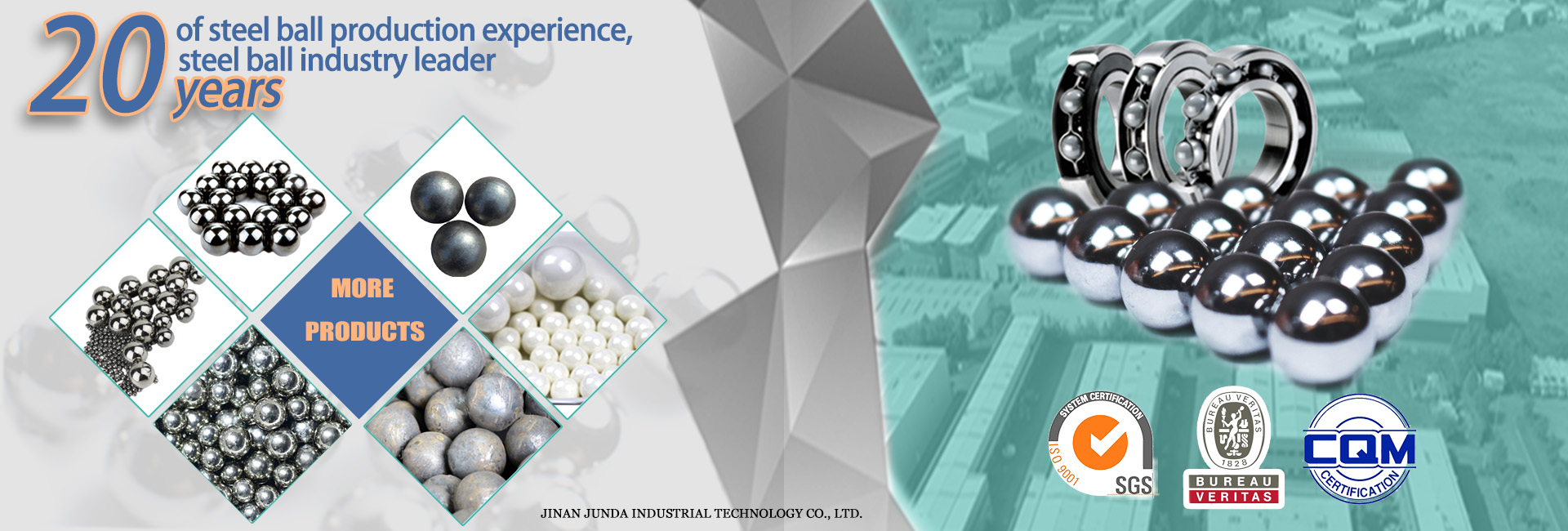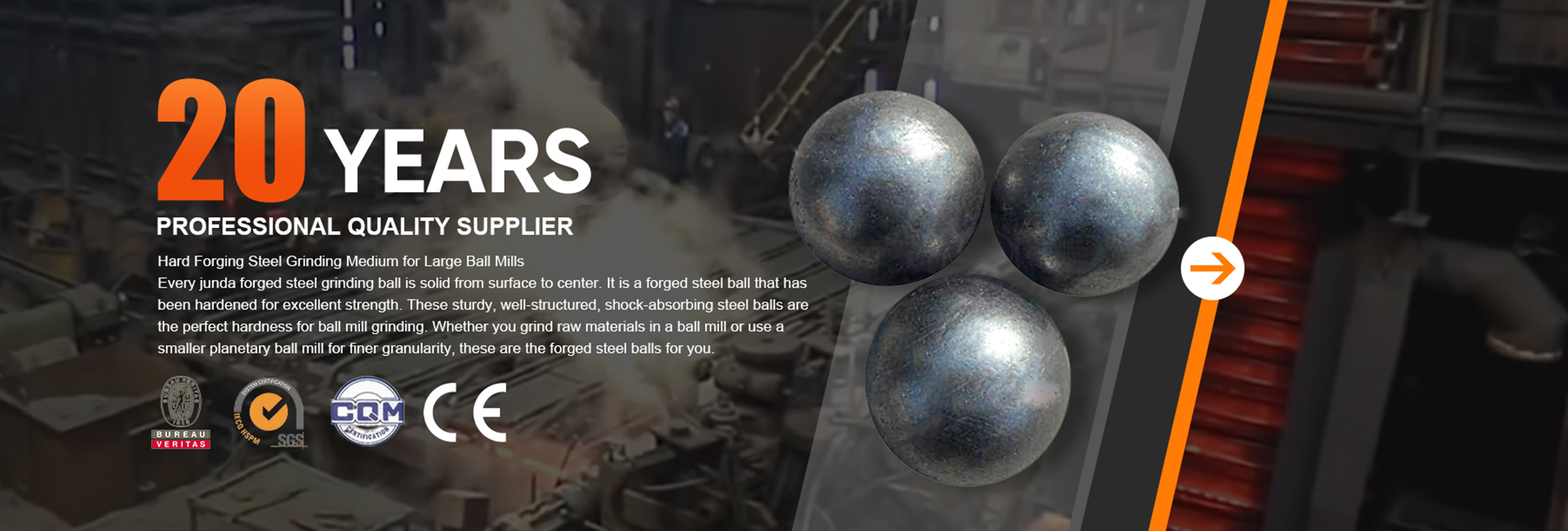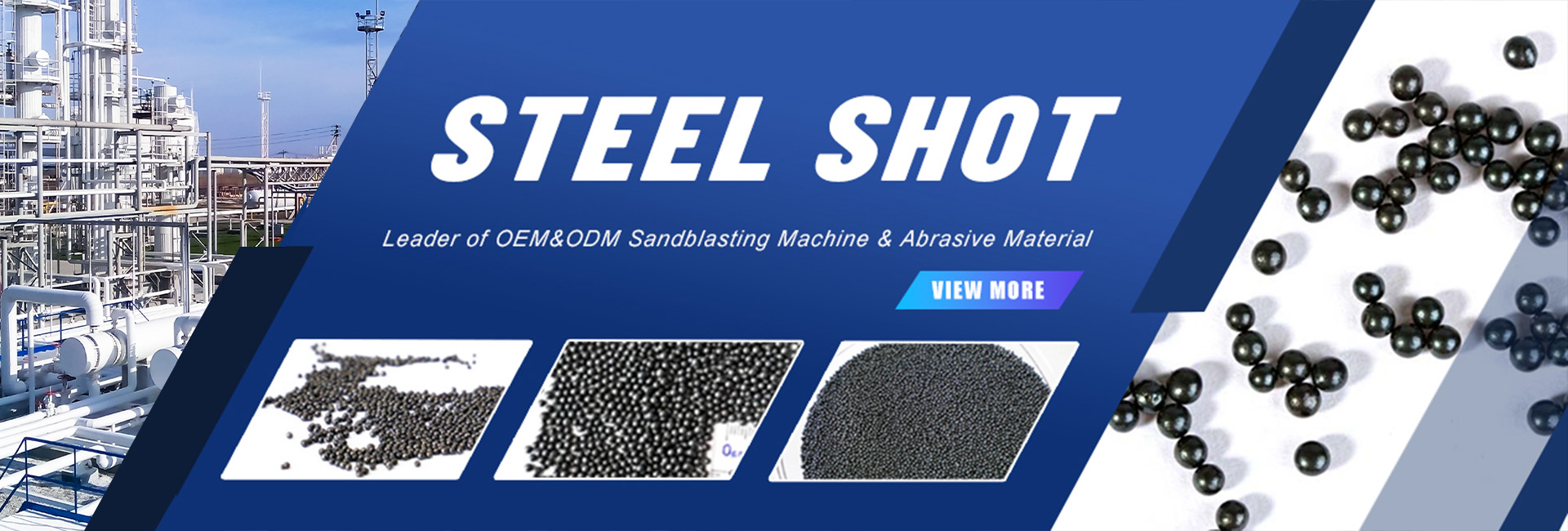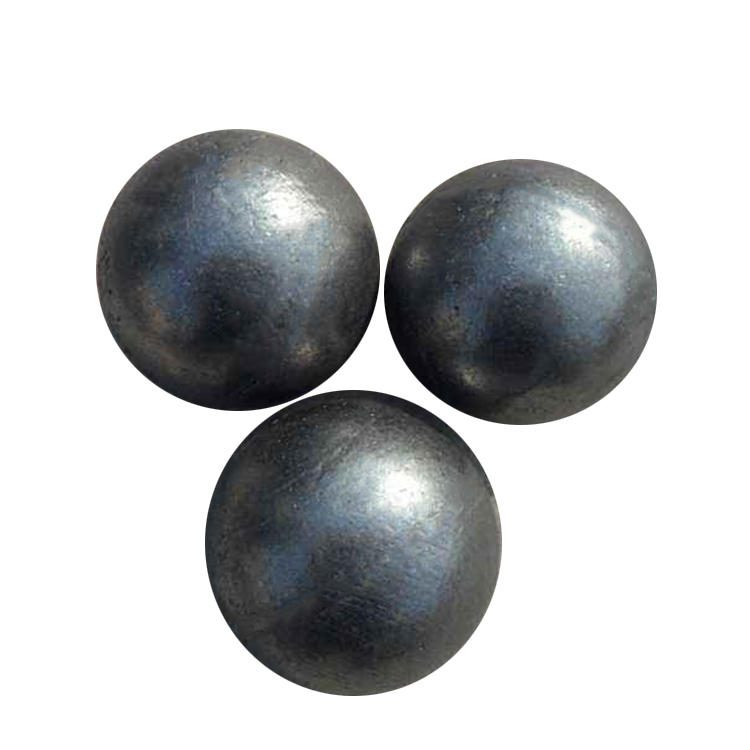Jinan Junda Industrial Technology Co., Ltd, is one of the top producers of forged steel balls.
Forged steel is produced by direct high-temperature heating with forging methods, with 0.1%~0.5% of chromium, less than 1.0% of carbon. After high-temperature forging, the surface HRC hardness can reach 58 – 65 . However, usually the hardness of the material is relatively low and the hardening layer is only about 15㎜, so the hardness of heart is generally only 30 hrc. The larger diameter of the steel ball, the low hardness of the center of the HRC hardness.. So, forged steel balls are treated with water quenching.
Production process : When the round steel bars pass the inspection, they are cut according to the size of the steel balls; the steel forgings are heated to a certain temperature by an intermediate frequency furnace to ensure that the effective deformation of the forging occurs; the red-hot steel forgings are It is sent into the air hammer and processed by skilled operators. After forging, the red-hot steel balls immediately enter the heat treatment equipment specially designed by our engineers.By quenching-tempering heat treatment, the forged steel balls can obtain high and uniform hardness both surface and inside..
The development trend : With the continuous research and development of raw materials and the continuous upgrading of production equipment in recent years, the application fields are becoming more and more extensive, especially in semi-autogenous mills such as metallurgical mines and ball mills with a diameter greater than 2.5m. Low abrasion and low breakage, the advantages are more obvious than cast steel balls. As far as the current wear-resistant steel ball market is concerned, in wet grinding applications such as metal mines abroad, forged steel balls are generally used for grinding. In the domestic market, cast steel balls are popular , but the market for forged steel balls is increasing greatlylyyear by year.
Post time: Mar-09-2023








